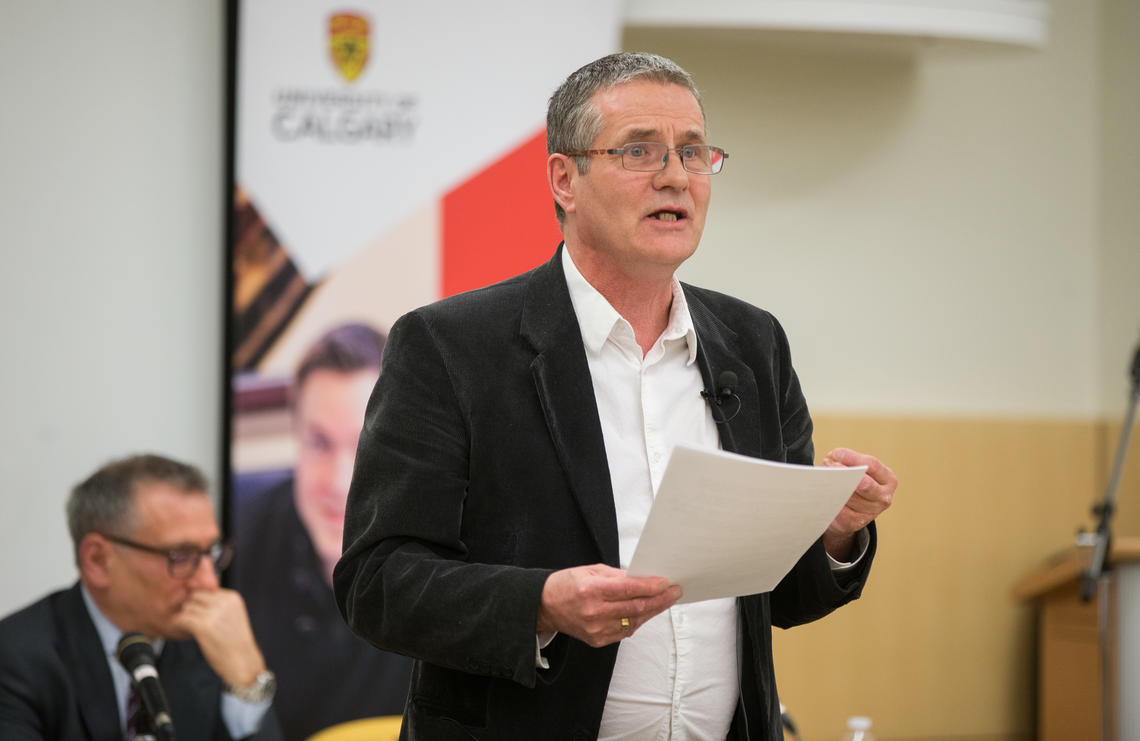March 1, 2018
Wrongful Convictions Day event shines light on challenges for accused
On February 13, the Faculty of Law hosted Wrongful Convictions Day to help create awareness around this issue. The keynote speaker was David Milgaard, who was wrongfully convicted of murder and spent 23 years in prison.
David Milgaard was sentenced to life in prison at the age of 17. It was 21 years later before his case was brought before Parliament and a review was completed on his file. This occurred through the tireless efforts of his family, in particular his mother, and his lawyers in lobbying the government and providing compelling information that demonstrated his innocence. Greg Rodin, QC was one of the lawyers who represented Milgaard, and he was present at the event to describe the many roadblocks and difficulties that they encountered before getting this case reviewed.
One of the difficulties faced by Milgaard, was in receiving the appropriate media attention. Public opinion can sway quickly in one direction or the other, but it was critical to his success that the public was on his side. Jocelyn Laidlaw of CTV Calgary spoke about the critical and often underestimated role that media play in the judicial system. Journalists have a duty to report on issues affecting the public, but they must also balance this with their duty to report the facts.
The story of David Milgaard is tragic and alarming, but it is not an anomaly in our justice system. There are many other instances in which the Canadian system has failed and wrongfully convicted people of crimes they did not commit. Professor Mike Nesbitt spoke about some of the broader, policy issues that can contribute to wrongful convictions. There are also context specific reasons that wrongful convictions occur. Professor Erin Sheley described how issues like unreliable evidence and witness testimony can contribute to wrongful convictions. When the information that is given to the Court is not correct, then wrongful convictions can be a result.
It’s critical for law students to hear from speakers like David Milgaard because they remind students of the human aspect to their work. Acting as a conscientious member of the judicial system can help to prevent wrongful convictions from occurring again. By learning how to recognize the frequent issues that arise in cases of wrongful conviction, students may be able to have a more balanced, approach to these issues.

David Milgaard spoke at the Wrongful Convictions Day event
Adrian Shellard


